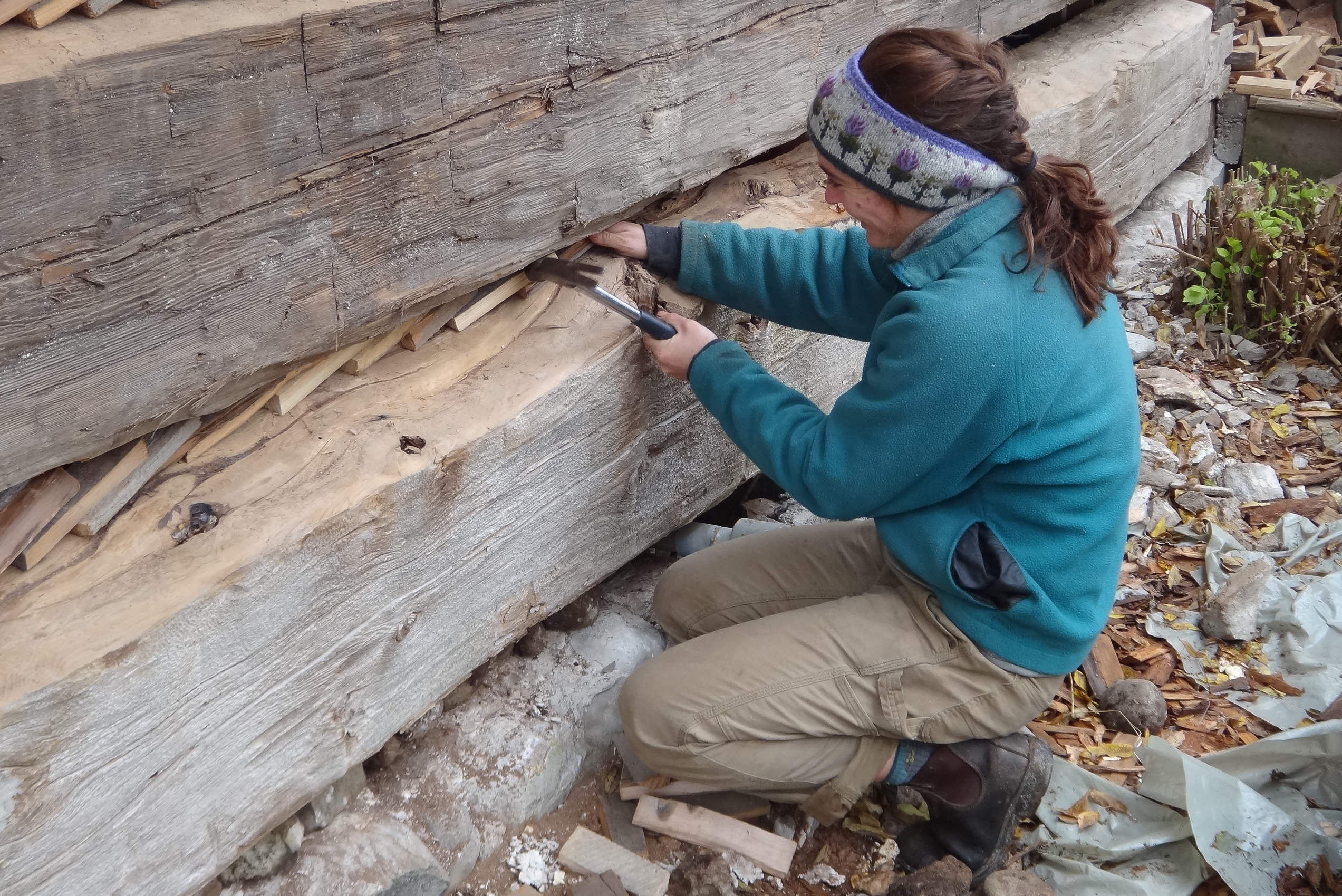Last summer, just over a year after Sierra Ross Richer graduated from Goshen College, she met the Wiederkehr family on assignment. The self-sufficient Anabaptist family lives on a farm in a remote section of Ontario, Canada.
Ross Richer had written about the Wiederkehr family and their 100 acres of farmland a few months earlier for the Anabaptist Climate Collaborative. She was assigned to write 48 articles and stories about Anabaptists around the globe and was drawn toward their self-sufficient lifestyle. For the article, she carried out her interviews remotely.In her article titled “Composting: An act of pacifism,” Ross Richer introduced the four members of the family: the brothers, Theo and Andre, and their parents, Ruth and Miles, and talked about their commitment to sustainability and the lifestyle they aspire to lead.
The published article began: “The Wiederkehr family farm in Ontario, Canada, doesn’t need a sewage system to take away its waste. That’s because the contents from the family’s compost toilet are decomposed and put back on the land as fertilizer. Andre and Theo Wiederkehr, brothers who run the farm along with their parents, believe that keeping nutrients on the farm in closed material cycles is an act of pacifism.”
After completing the work assignment with the Anabaptist Climate Collaborative last spring, Ross Richer came back to Goshen, but couldn’t stop thinking about the Wiederkehrs back in Ontario. She decided to visit the farm in person in June. She caught a ride to Ontario and, after meeting the family, biked home.
“[It] took six days of biking, seven days total,” she said. “It was kind of on that bike ride then that I decided … I wanted to come back and try living and working with them. So I came back in August.” She also made the decision to sell her car before making the trip back up to Ontario.
Ross Richer graduated in 2022 with a degree in journalism. She ran cross country and track and was executive editor of The Record during her time in college. After leaving GC, she was listening for a vocational call.
Her passion for advocating for environmental change was fostered by her family; her sister, Naomi Ross Richer, wasn’t surprised by her decision.
“We used to dream together about what the future would look like … our ideas and plans were never concrete but they always involved us connected in some way,” Naomi Ross Richer said. “Her shift towards a fully carbon-free lifestyle is admirable at the core, and it aligns with a value our family has always held tightly — of sustainable living.”
Sierra Ross Richer’s motivation for the move was inspired by a desire to live a self-sustainable life off the land. “One day while we planted beans in the garden, I expressed my belief that the descendants of white settlers, including myself and other Mennonites, would not be able to address climate change because we don’t know how to live as indigenous on the land,” she said.
According to Ross Richer, the Wiederkehrs are not living fully independently of public utilities. “My lifestyle here isn’t off-grid per se,” she said. “I’m not exactly sure what off-grid means, but I assume it means not being hooked up to the electric grid, which we still are.”
The Wiederkehrs also continue to cut out vehicles that rely on fossil fuels from their everyday lives to reduce their emissions.
Ross Richer starts her mornings on the farm at 7 a.m. After waking up, everybody in the house works together to make breakfast for the day. Much of the food they prepare is grown on the farm, and diets vary depending on the seasons.
With winter coming up, Ross Richer is anticipating her upcoming responsibilities.
“Some things I expect to do are planning for next year’s gardens, cutting firewood from the back bush, doing mending projects, experimenting with processing the flax and hemp fiber we grew this year, and doing research for future projects.”




